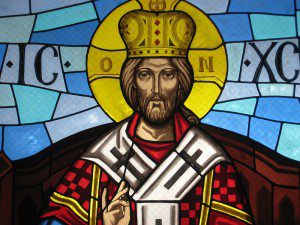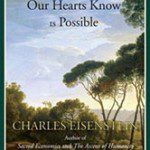
Attribution: John Stephen Dwyer
Lectionary Reflections on The Reign of Christ Sunday
November 24, 2013
Isaiah 23:1-6; Psalm 46; Colossians 1:11-20; Luke 23:33-43
Universality and Intimacy
Can we talk about Christ the King or the Reign of Christ Sunday in a pluralistic age?
At first glance, there is something anachronistic about claiming Christological superiority in a postmodern age of seekers, multiple faiths, and self-described spiritual but not religious persons. Need universality lead to imperialism? Can we claim universality in terms of God’s presence in the ministry and mission Jesus of Nazareth in a world of multiple truth claims? Can the universal be balanced by the particularity of our own faith perspective?
Every religious tradition claims a type of universality. Buddhists assert albeit humbly that Buddhist practices can, in principle, be transformative for everyone. The Jewish vision of God, even apart from the Christian incarnational understanding of Jesus, cannot just be restricted to the Jewish people, but must have applicability, in principle, to all people. Still, the world’s many faith or wisdom traditions affirm different things. The world’s religions are not the same, nor do they claim to lead to the same destination by similar practices. This diversity does not need to lead to a Balkanization of faiths, but to an evolving interdependence of faith positions, growing alongside one another and learning from each other.
Jeremiah speaks of divine shepherding. God does not dominate but serves. The God of all things cares for each thing: God’s companionship casts away all fear and renews all things. God appoints caregivers not to “lord it over” the laity but to heal and reconcile all people. God seeks wholeness for all creation, and God’s spokespersons have the same responsibility, to gather together, to seek unity, and nurture new life and creativity.
Psalm 46 continues the theme of divine wholeness. God is our refuge and strength; God helps us in challenging times. In the maelstrom, we discover that we are not alone but that God is with us. But, to experience divine wholeness, we need to “be still” or “pause awhile.” God speaks in the maelstrom of life: a still small voice whispers through the storm and gives guidance and courage to those who stop long enough to listen. God is on our side, giving protection and strength, in times of trial. But, we must let go of frenetic activity and anxiety to experience holiness in the center of the cyclone.
Stillness awakens us to the larger perspective. We discover that our personal and social upheavals are part of a larger more orderly and creative fabric of divine care. The upheavals are important but not all-dominating when we recognize that God is with us. As the New Creed from the United Church of Canada asserts: “We are not alone, we live in God’s world….In life, in death, in life beyond death, God is with us. We are not alone.”
The passage from Colossians joins the universal and intimate. In Christ, all things are created. In Christ, God’s fullness dwells: the fully alive Jesus is a catalyst for our own personal and institutional creative transformation. God’s glory does not dominate but nurtures our own agency, creativity, and responsibility. Through Christ, God reconciles all things. In reconciling all things, Christ reconciles each thing and that means each one of us. The ever-present God is present in the here and now, in your life, and in your community, always seeking Shalom.
Colossians joins cosmology and personality. What touches all things heals each thing. The One who moves though all things also moves through each of our lives, seeking abundant life and wholeness for all of us, one person at a time.
Luke sees Calvary as the center of sacred space-time. Jesus forgives the people right in front of him: the crowd and the political leaders are dominated by fear and egocentricity; they cannot see beyond their own alienation and consequent need to dominate and destroy. Jesus is the projection – the scapegoat – intended to ease their anxiety and alienation; but this projection does not limit or dominate him. He freely claims his relationship to God’s Shalom in the maelstrom of violence.
Jesus’ promise to his companion on the cross goes from clock time to God’s everlasting life. “Today you will be with me in paradise” suggests a relationship of wholeness in the midst of dying and death. Jesus doesn’t describe what he means by paradise, but he opens the door to a larger space-time perspective that embraces the vision of heaven and the communion of saints. We can experience everlasting life now: we can experience God’s vision amid the ordinary moments and tragic conflicts of life. Our life is part of a grand adventure that goes beyond our physical deaths. Death does not limit God’s love. Rather God continues God’s aim at wholeness in any future adventures we might have.
The realm of Christ is intended for healing and affirmation. In the divine-human, divine-creaturely, call and response, God identifies with our deepest needs and the deepest needs of the planet (and beyond) and does all that can be done to bring health to the body, cell by cell and soul by soul. God’s vision invites us to be agents of the moral arc of the universe.













